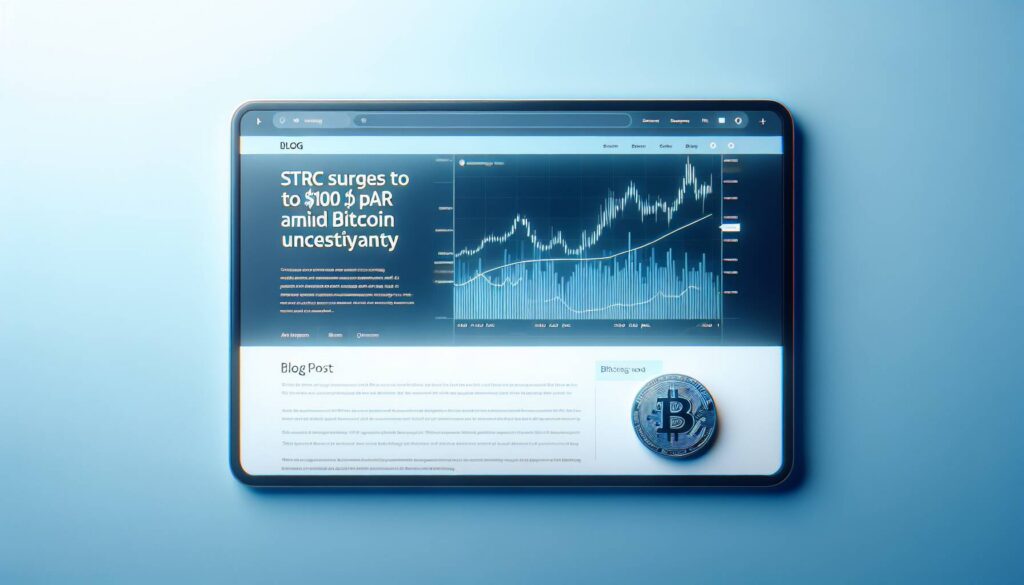This week marked a significant surge in coverage from CoinDesk, as the cryptocurrency industry braces for a new presidency and the potential advent of a regulatory climate more favorable to digital assets. With the spotlight on recent developments, it seems that a fresh wave of optimism is washing over the crypto sphere.
Senior analyst James Van Straten highlighted a notable trend: numerous companies are increasingly adding bitcoin to their balance sheets. This move follows the approach set by MicroStrategy’s Michael Saylor, who has long been a proponent of institutional bitcoin investment, signaling a shift in how corporations view cryptocurrencies as a prudent investment strategy.
Additionally, markets reporter Krisztian Sandor captured the buzz surrounding the rising values of cryptocurrencies like Solana’s SOL, XRP, and Hedera’s HBAR. Speculation is swirling that former President Trump might endorse an “America-first” crypto reserve, further igniting interest and investment in digital assets as national bitcoin holdings loom on the horizon.
Amidst these rising trends, Markets Co-Managing Editor Omkar Godbole examined the current trough in bitcoin prices. Despite a recent selloff, he reassured readers that it is unlikely to hinder the long-term adoption of bitcoin by institutional investors, suggesting that the overall narrative surrounding cryptocurrency remains positive.
In a revealing interview, Ian Allison spoke with Norman Reed, the newly appointed chief of Binance.US. Reed discussed the challenges faced during a 2022 SEC investigation, highlighting efforts by regulators to strangle the exchange’s banking partnerships. This insight into the ongoing regulatory battles underscores the resilience of crypto firms in adapting to a challenging landscape.
Asia reporter Sam Reynolds also addressed the regulatory landscape, particularly with regards to Polymarket, a platform facing scrutiny as it navigates complex gambling laws. However, there appears to be a silver lining, with Kalshi gaining Donald Trump Jr. as an advisor, suggesting that the U.S. may start to emerge as a more welcoming environment for crypto companies.
On the corporate front, excitement is building around potential mergers and acquisitions, as self-custody wallet Ctrl Wallet has put itself up for sale, hinting at increased activity in the space. Meanwhile, the anticipated launch of cryptocurrency ETFs is expected to gain momentum, setting the stage for a vibrant trading environment in 2024. Reporter Tom Carreras indicated that Litecoin, an early bitcoin alternative, could be the next asset to gain approval for ETF trading, with projections suggesting substantial inflows could follow.
Regulatory issues remain a key focus, with Deputy Managing Editor Jesse Hamilton revealing that addressing the “de-banking” challenges faced by the crypto industry is now a priority for the upcoming Trump administration. Furthermore, the SEC and CFTC are in the process of refreshing their leadership, as they move away from personnel resistant to crypto innovation, paving the way for more supportive regulations.
As the weekend unfolds, the crypto community prepares for a series of inaugural celebrations in Washington D.C., with CoinDesk set to provide comprehensive live coverage on Monday. The atmosphere is charged with anticipation as crypto enthusiasts look ahead to the potential changes and opportunities that a new administration may bring.

Crypto’s New Era: Key Highlights
As the cryptocurrency landscape shifts with a new presidency and regulatory changes, here are the pivotal points to consider:
- Increased Institutional Adoption:
- Companies are following MicroStrategy’s lead in purchasing bitcoin to strengthen their balance sheets.
- Emerging Market Trends:
- Rumors surrounding Trump’s potential support for a national bitcoin reserve have led to the rise of assets like Solana (SOL), XRP, and Hedera (HBAR).
- Bitcoin Price Stability:
- Despite recent selloffs, experts believe long-term institutional adoption will remain unaffected.
- Regulatory Dynamics:
- The new Binance.US chief highlighted challenges faced in maintaining banking relationships due to SEC scrutiny.
- Several countries have moved to ban platforms like Polymarket, indicating heightened regulatory scrutiny in prediction markets.
- Market Mergers & Acquisitions:
- Ctrl Wallet announced it is up for sale, hinting at increased M&A activity in the crypto space.
- Expected Growth in ETFs:
- A potential Litecoin ETF could attract substantial investment, similar to last year’s bitcoin ETF performance.
- Focus on De-banking Issues:
- The Trump administration aims to prioritize crypto de-banking issues, signaling potential regulatory support.
With changes in policy and regulatory stance, readers may find new opportunities and challenges in their crypto investments, necessitating a closer look at the evolving landscape.
CoinDesk’s Crypto Coverage: A New Era of Opportunities and Challenges
CoinDesk is making waves in the crypto space this week, providing insights during a transitional phase as the landscape shifts with new leadership and the promise of favorable regulatory developments. The coverage highlights several shifts in market behavior, particularly the increased appetite among companies to adopt bitcoin into their balance sheets, a trend spurred initially by MicroStrategy’s influential strategy. This move signals a significant competitive advantage for businesses looking to capitalize on institutional trends, as it reinforces the legitimacy of digital assets in traditional finance.
However, this proactive embrace of cryptocurrencies may also expose these entities to heightened scrutiny from regulators, particularly as the Trump administration takes a keen interest in addressing “de-banking” issues within the industry. While this administration’s focus could foster an environment more conducive to crypto growth, it could also stifle innovation if the regulatory framework becomes overly strict or cumbersome.
In coverage of Solana, XRP, and Hedera’s recent upticks, the potential backing from influential political figures like Trump could offer a unique competitive edge, buoying investor confidence. Yet, such speculative surges could also invite volatility—a double-edged sword for investors looking for long-term stability versus those gambling on quick returns.
On the regulatory front, the departure of “anti-crypto” officials from the SEC and CFTC marks a pivotal moment. If new appointees embrace a more friendly regulatory stance, it could galvanize the crypto market, attracting even more institutional investments, especially with the imminent launch of various ETFs, including a projected Litecoin ETF poised to draw significant inflows. However, the shadow of potential regulations still looms, creating uncertainty for newer crypto businesses that might struggle to navigate these evolving guidelines.
This shifting landscape presents opportunities for established players, while potentially disadvantaging startups that fail to align with compliance requirements. Moreover, the discussions surrounding M&A activity indicate a trend where larger entities may consolidate resources, possibly sidelining smaller competitors who cannot keep pace in this fast-evolving environment.
Overall, while CoinDesk’s coverage shines a spotlight on a promising era for crypto, it simultaneously exposes various factions—whether they be corporations, investors, or startups—to challenges that could shape their future trajectories in both positive and detrimental ways.















